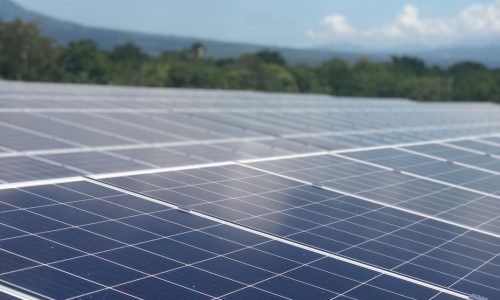There is a shifting trend and view toward video games nowadays. Video games had been viewed as a nerdy activity and often mocked. Video games are now an activity done and favored by many, specially the younger generations from Millennials to Gen Z.
When Jakarta and Palembang, South Sumatra, hosted the 2018 Asian Games, the e-sport – which featured games of Arena of Valor, Clash Royale, Hearthstone, League of Legends, Pro Evolution Soccer and StarCraft II – immediately caught the attention of local audience.
Though e-sport was featured as demonstration sport – meaning the medal won was not counted in the medal tally – Indonesia managed to win one gold and one silver medals at the quadrennial event.
Today, youngsters can play games on their smartphones and do not have to own gaming consoles such as PlayStation or Xbox.
The gaming industry was certainly on the rise during the 2010s and it is one of the industries that is positively impacted by the COVID-19 pandemic as the numbers of active players skyrocketed, especially during quarantines.
According to data from Statista, New Zoo and Juniper Research, the video game industry is now estimated to be worth US$178.3 billion in 2021, a 14.4% increase from 2020. Asia dominated the total number of players with 1.48 billion gamers out of 3.2 billion gamers worldwide.
Indonesia specifically ranked 16th in terms of the gaming market with sales of US$1.92 billion by the end of 2021. And according to the Indonesian Game Association (AGI), the national gaming sector is projected to grow steadily at 37% annually, higher than other Southeast Asian nations.
Chains of opportunities are here
Considering the current trend, most gamers use PC and/or mobile phones as their main device to play. This is no different from the situation in Indonesia.
Indonesia’s growing economy and the affordability to play offline and online games on mobile phones make it easier for the people compared to PC and gaming consoles, which are too expensive for most Indonesians. Moreover, the ease of gaming on mobile phones put the gadgets as the most used platform to play games as they can be used “in-between activities” as opposed to PCs and gaming consoles that people can only use during their off time.
The video game industry has a bright and more than promising prospect in Indonesia. Numerous opportunities should be seized by various companies that deal in the video game industry, including game studio developers, publishers, event organizers, dedicated server hostings, ISPs and so on. Mobile game developers should try an opportunity to operate in Indonesia.
Montoon is a developer for mobile game called Mobile Legends: Bang Bang. A Multiplayer Online Battle Arena (MOBA) game is arguably the most popular mobile game in the world, especially in Indonesia.
A report from Nimo TV suggests that the total active players for Mobile Legends: Bang Bang in Indonesia is around 49.98 million active users which accounts for 29.4% of active users in January 2021.
Montoon also takes profits from microtransactions in cosmetics of the characters, memberships and in-game currency which do not affect the gameplay whatsoever to make it fair and skill-based.
Is it attractive enough for players?
Other opportunities are organizers that wish to hold major/minor competitions of popular mainstream games.
DOTA 2, one of the most well-known online games, holds the current record for the biggest prize pool in e-sport history and has organized a minor competition in Jakarta, inviting top global teams. The prize pool was at US$300,000, the most at that time. However, it would be much more profitable if organizers held more popular competitive mobile games such as Mobile Legends: Bang Bang or Playerunknown’s Battleground Mobile (PUBG) as the market share is much larger than PC games.
Furthermore, top teams should look for the opportunity to recruit players from Indonesia. With the abundance of players, talent is nothing short. Some notable players that have played for international teams are:
- Hansel “BnTeT” Ferdinand who plays Counter-Strike Global Offensive for Team Tyloo
- Tri “Jhocam” Kuncoro who plays DOTA 2 for Nigma Galaxy SEA
- Muhammad “inYourdreaM” Rizky who plays DOTA 2 for Nigma Galaxy SEA
- Kenny “Xepher” Deo who plays DOTA 2 for T1
- Matthew “Whitemon” Filemon who plays DOTA 2 for T1
- Rafli Fathur “Mikoto” Rahman who plays DOTA 2 for Talon Esports
- Saieful “Fbz” Ilham who plays DOTA 2 for Boom Esports
Other Indonesian teams that dominate professional mobile e-sports are EVOS Esports, Rex Regum Qeon (RRQ), Bigetron Esports and Aerowolf.
Several Indonesian celebrities also set up e-sport teams including Noah band frontman Ariel (The Pillars) and actor/singer/MC/entrepreneur Raffi Ahmad (RANS Esports).
Developers should note that although it is a lucrative market to focus on games in Indonesia, the game needs to be innovative enough to lure “loyal” players away from their main game. Furthermore, it might also need an extra budget to market the game as well as various tournaments to pique the interest of the gamers.
The shining example of this is how the game Valorant managed to lure away professional Counter-strike Global Offensive players away to play competitively in their game. The launch of Valorant took the world by a storm as it managed to lure quite a lot of players in its early days. And currently, it is one of the most played games on PC with an average monthly player of 14.5 million in January 2022.









